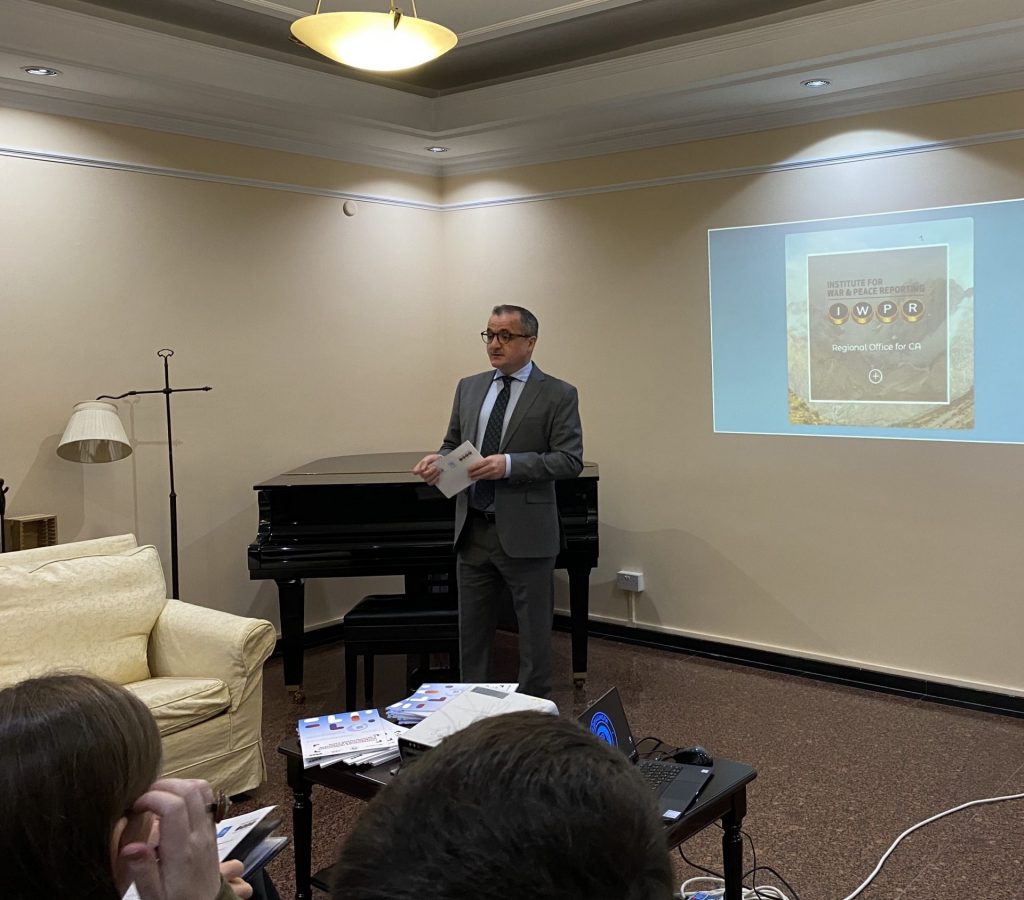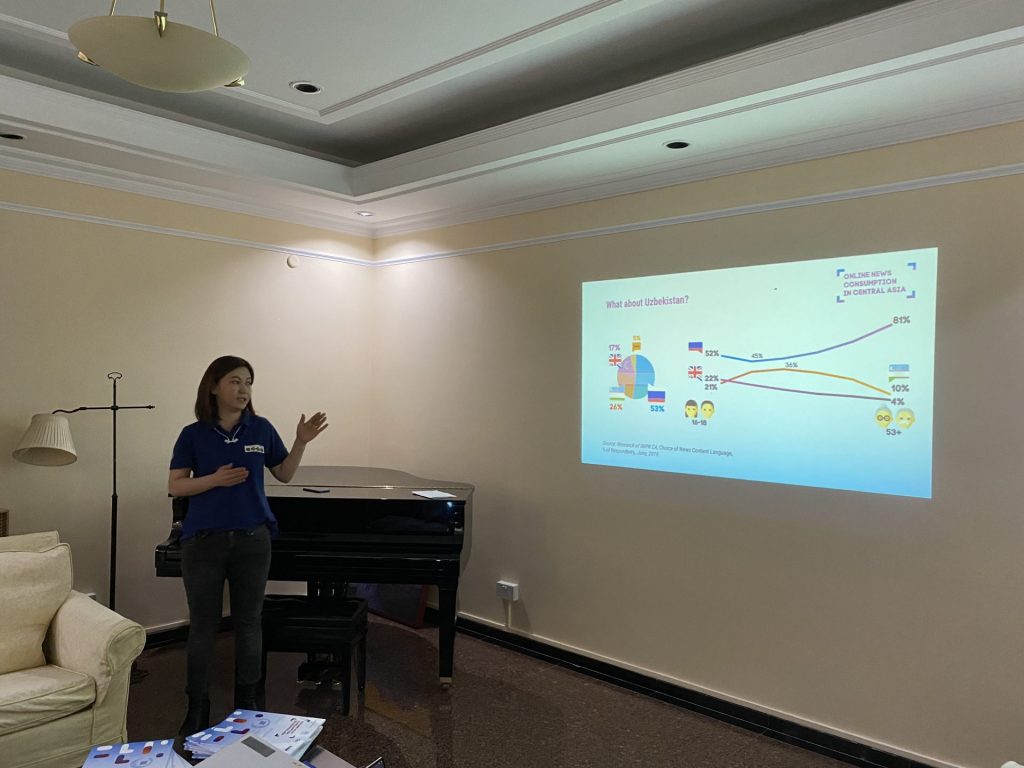On February 24 in Tashkent, IWPR presented the results of research on how in Central Asia they read, watch and listen to the news on the Internet.
Uzbekistanis often receive their news from social networks and generally repeat the trend of their neighbours from Central Asia. But unlike other countries in Uzbekistan, instant messengers almost caught up with social networks as a source of news.
Such a trend increases the country’s vulnerability to the spread of misinformation since it is impossible to analyze, study and control the content distributed in instant messengers.
Journalists, editors and bloggers should consider social networks and instant messengers as a separate platform for which content should be created taking into account the parameters and audience of these sites.
Like in Tajikistan, in Uzbekistan, Facebook ranks first among social networks, and Telegram among messengers, said Begaiym Adzhikeeva, IWPR Central Asia project coordinator, at the presentation of the results of the research in Tashkent.

The event was also attended by Her Majesty’s Ambassador to the Republic of Uzbekistan Tim Torlot. He emphasized the importance of this study for the country’s media and civil society.
In recent years, the Internet has penetrated into the farthest corners of Central Asia and the number of users in the region is growing exponentially. However, along with this, new problems arise, noted IWPR Regional Director for Central Asia Abahon Sultonazarov.

«The amount of misinformation in media content has increased, as well as the clickbait headings. With the same, concerns about the level of media and information literacy among the population and journalists in Central Asia are growing. In order to understand and measure these trends, we conducted our study.»
As one of the guests of the presentation, analyst Yuri Sarukhanyan, noted, along with the main topic, the study revealed the problems of providing people with access to the Internet in rural areas, as well as gender inequality in the consumption of Internet news content.
«The methodology, the main conclusions and recommendations, in my opinion, can be used by the relevant agencies of the countries of the region to conduct their own, more in-depth country analysis», – Sarukhanyan said.
People consume news in Russian
Every second resident of Central Asia reads the news in Russian, and local languages are less popular. Experts attribute this to the fact that most publications are located in the capitals of the republics, and most social networks offer Russian-language content.

Moreover, as the IWPR Central Asia research coordinator Jazgul Ibraimova, said that Uzbek people aged 19 to 43 years more often than others consume news in the Uzbek language.
Another trend is also visible from the study – the younger the respondent, the more preference he or she gives to international and foreign publications, reading news in English.
Social topics are the most requested from the audience 
Among the most popular topics are technology, politics, social topics and education. The older the readers, the more often they read news about politics, society and health. The young audience chooses sports, education and technology.
Respondents noted that they lack stories about society, technology, the environment, and people with disabilities.
Short news in popular video format
As Jazgul Ibraimova noted, among the respondents there is a clearly emerging trend – the consumption of short news pieces. True, the offer of this format is the highest in the media space, so the viewer does not have to choose, but to consume what they are given.
The relevance of information as an indicator of reliability
The research also touched on measuring the level of media literacy of the population. A third of respondents said they trust the information on official and news sites. In case of doubt about the accuracy of the information, only 4 out of 10 check the relevance of the information or look for other sources.

As in other countries of Central Asia, Uzbeks do not notice gender biases and stereotypes regarding women in news stories. And 70% of respondents are not familiar with such a phenomenon as “hate speech”.
After the presentation, Jazgul Ibraimova voiced recommendations to news agencies and bloggers:
- Develop social journalism, local and regional content, strengthen the quality of content in local languages.
- Pay more attention to the design of pages, accounts on social networks, create unique content on those sites where there is the most involvement.
- Form a personal brand of journalists as authors, and work on personal promotion. At the same time, do not forget ethical and value guidelines.
- Change approach to journalism; go from a simple presentation of news to telling significant stories, explaining events, help the audience understand the processes, with the extraction and analysis of data, visualization.
“This project is implemented by the Institute for War & Peace Reporting (IWPR) with financial assistance from the UK Government. Views expressed during project events and/or in project publications do not necessarily reflect the official views of the UK Government and IWPR”





